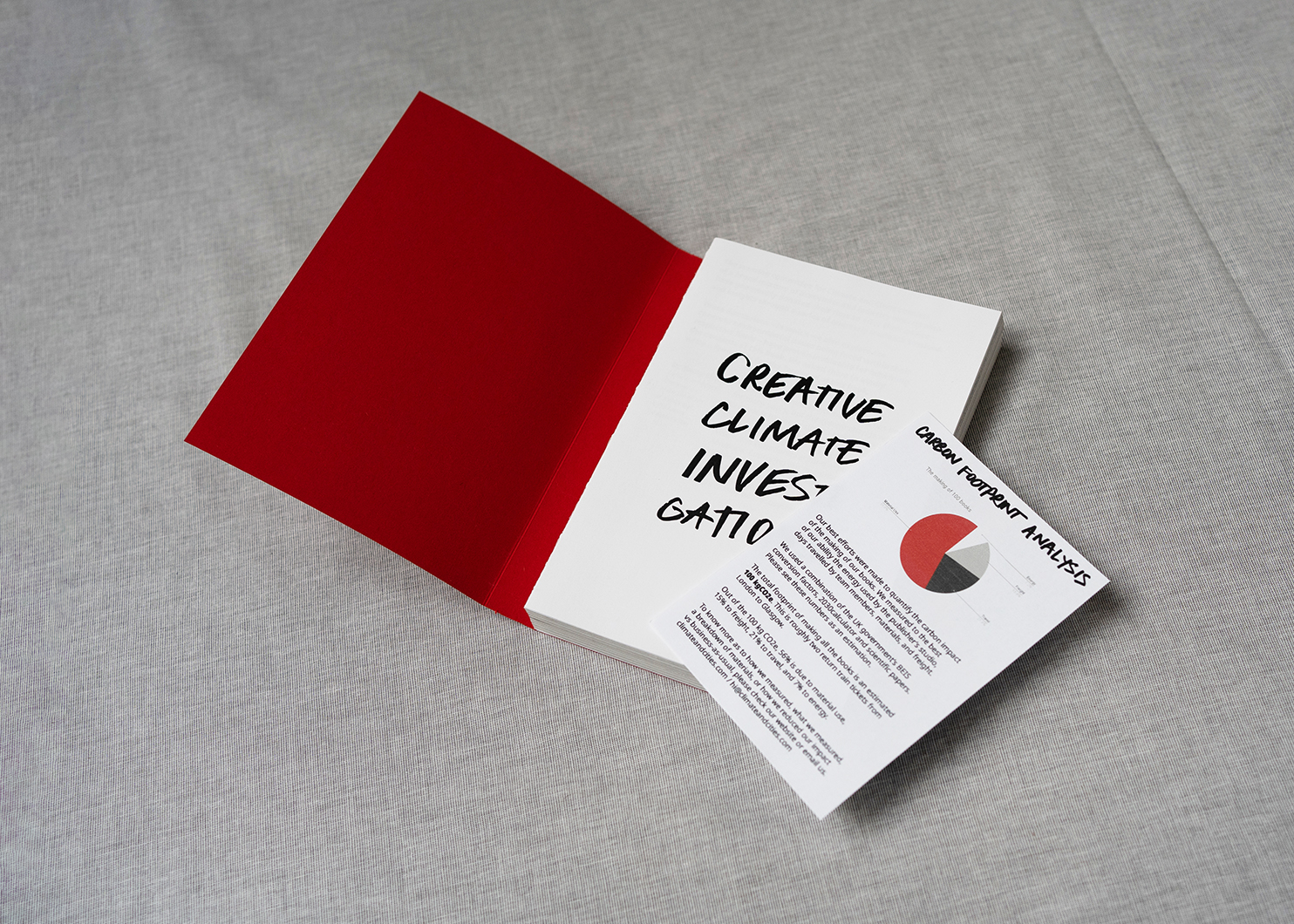
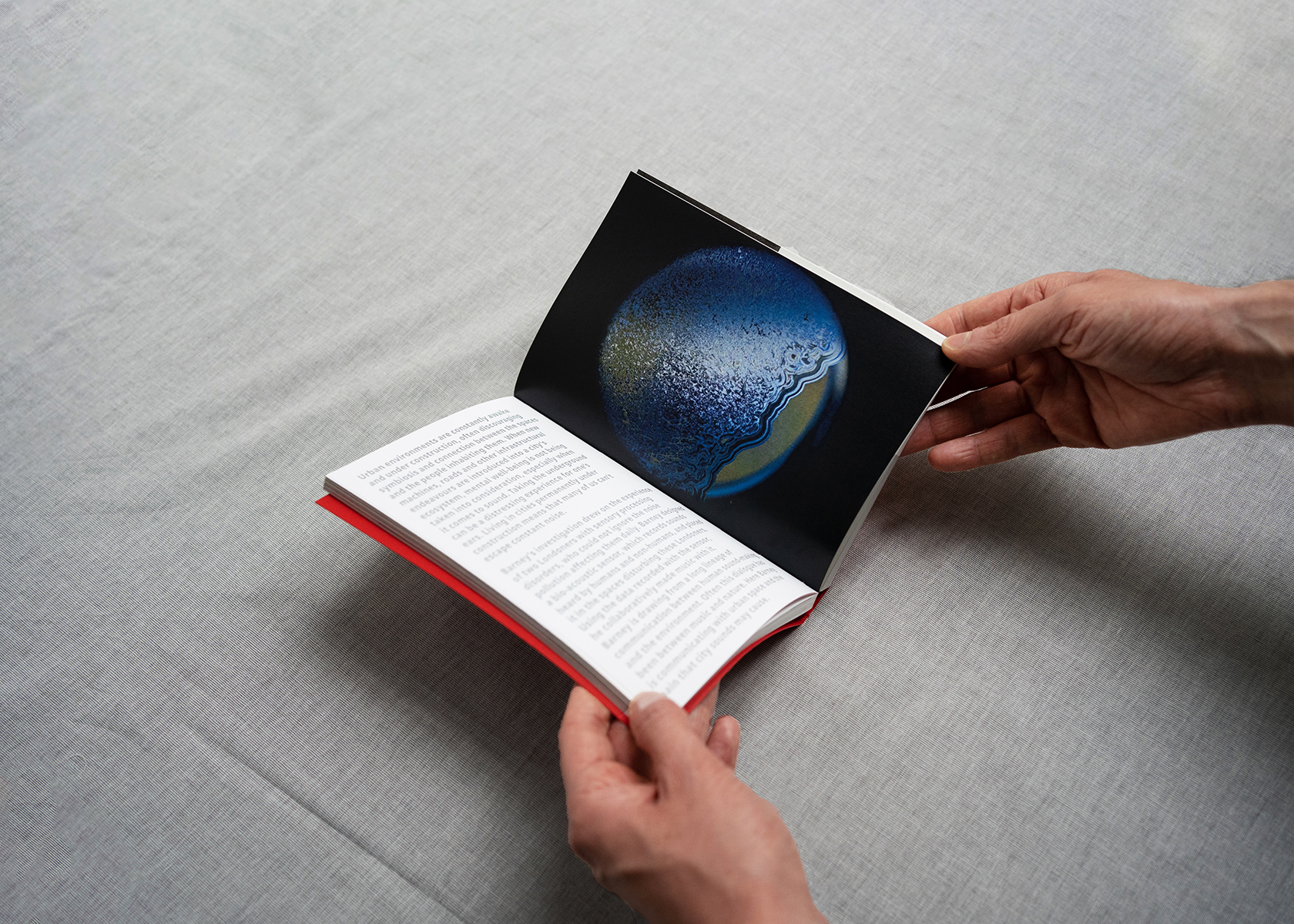
photography by nicolee tsin
Creative Climate Investigations Book
Creative Climate Investigations is the culmination of learnings, experimentations, & proposals from 2.5 years of creative research, exploring challenges at the nexus of climate & the urban environment
The project was originally funded on Kickstarter.
For the print version, we have a few copies left, distributed by Antenne Books! Click here. For the digital version, please check our e-shop!
What is it?
Creative Climate Investigations — our first publication — is a showcase of 8 projects exploring greenwashing, air quality, environmental effects on wellbeing, plastic, the ecological impacts of data harvesting, trees, global dimming, and green spaces, collected together for the first time in a thoughtfully designed limited-edition book.The production of the book presented an opportunity for us to put our beliefs into action; from research into rice and starch-based binding glues, to digging into the supply chain of printing ink, our design process aimed to use the most sustainable printing methods possible, with a carbon footprint analysis shared after production. By open-sourcing this knowledge, we hope that it can act as a blueprint for others to build upon.
We printed our book with Folium Publishing in South Bermondsey (London).

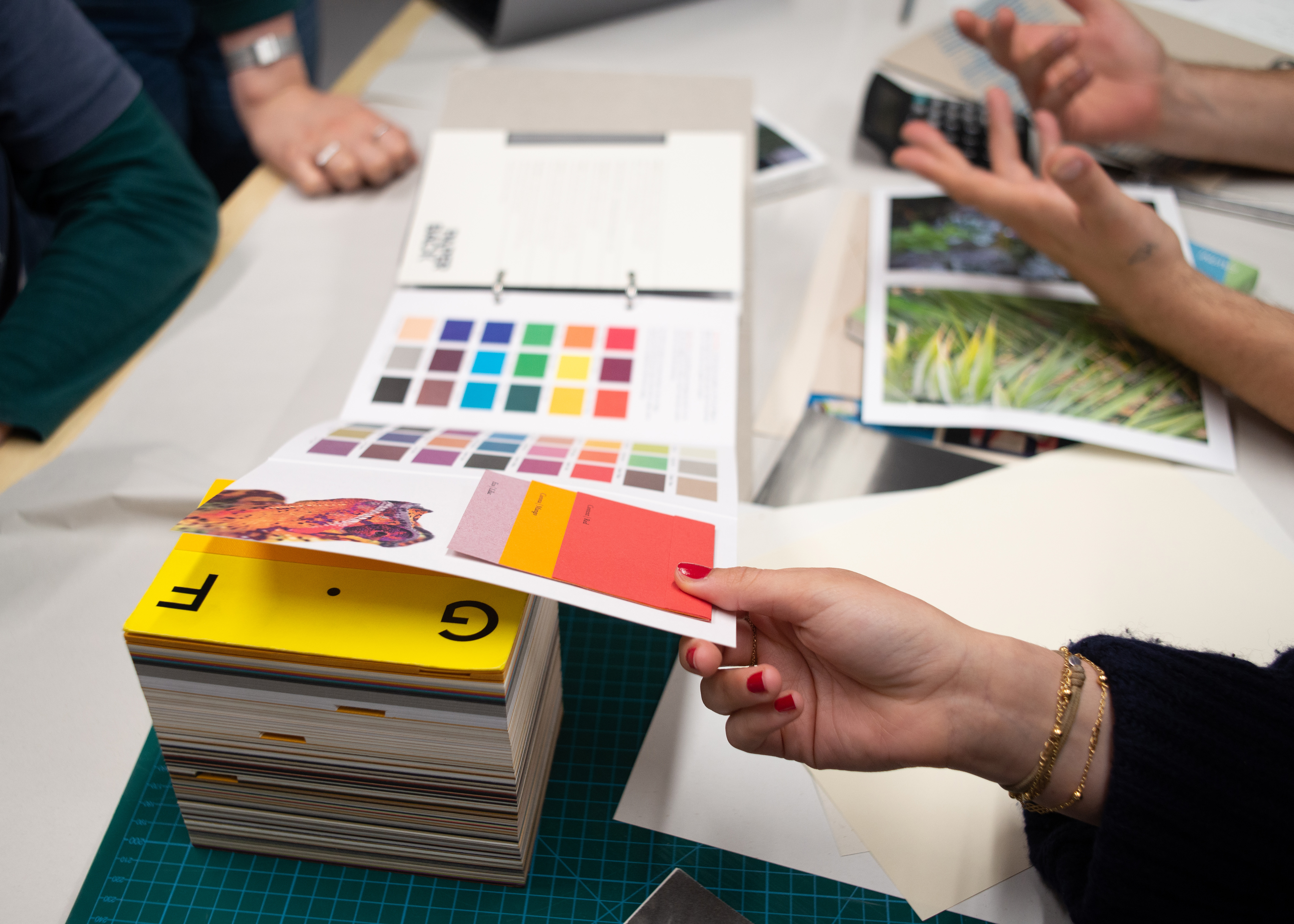
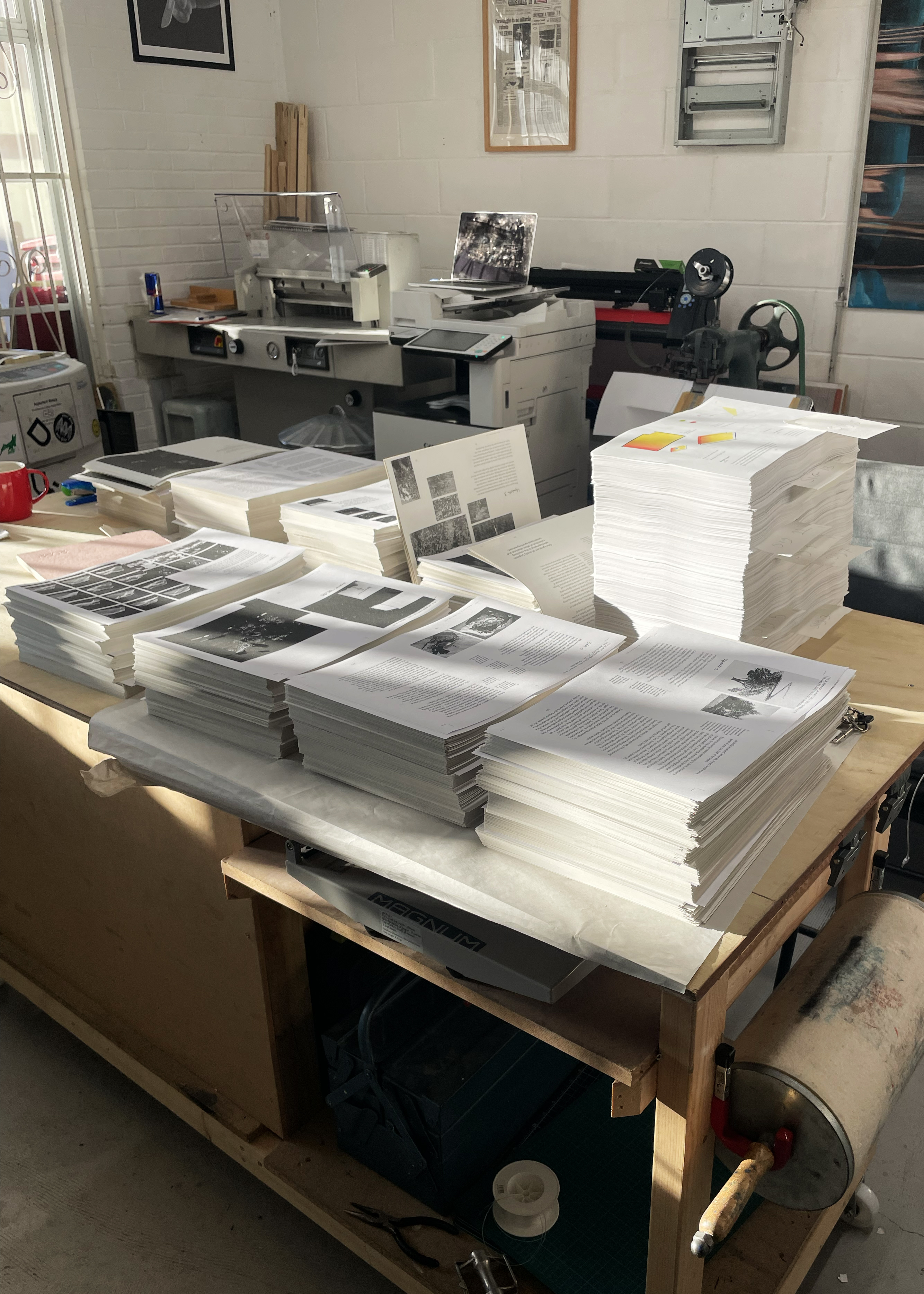
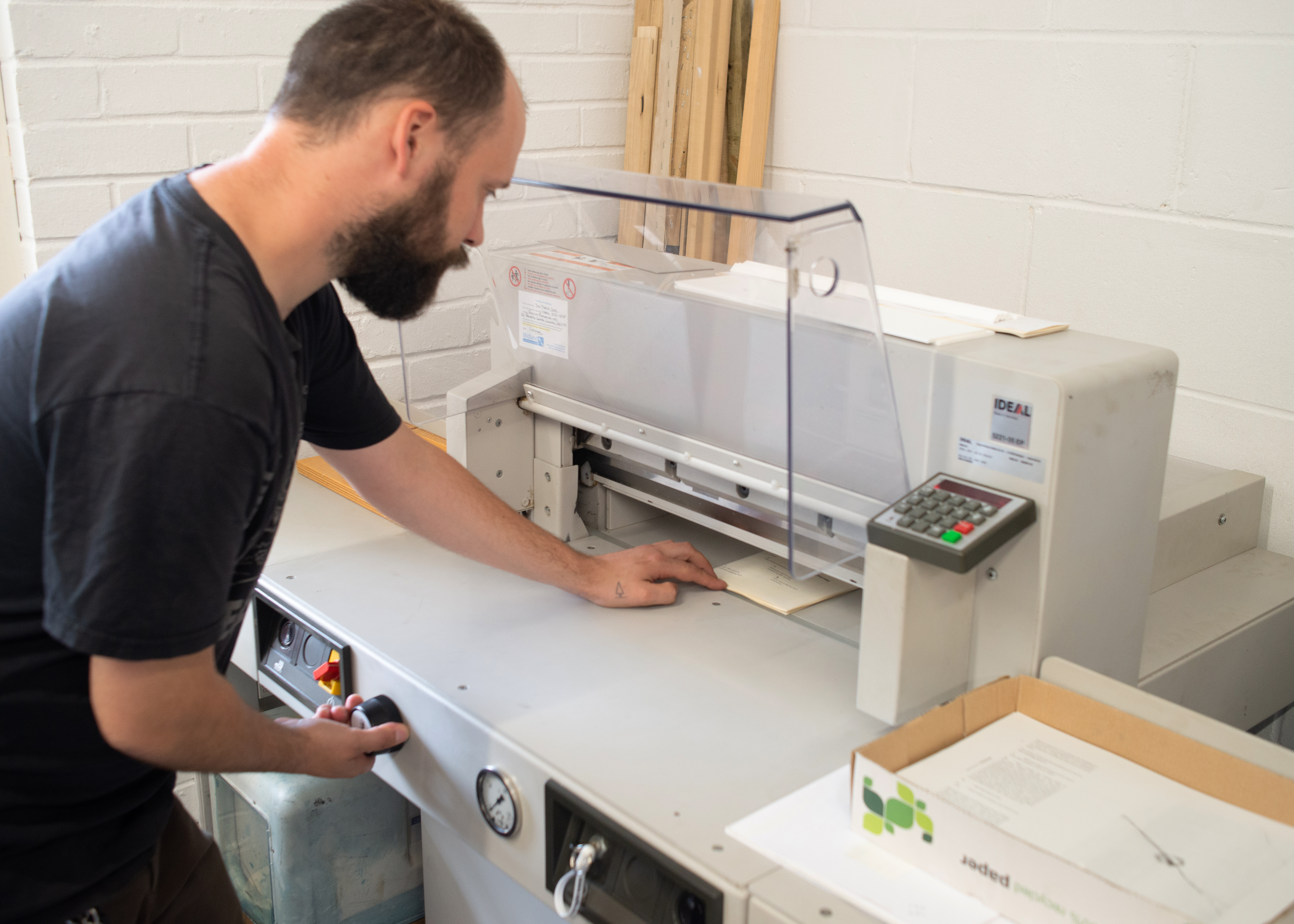
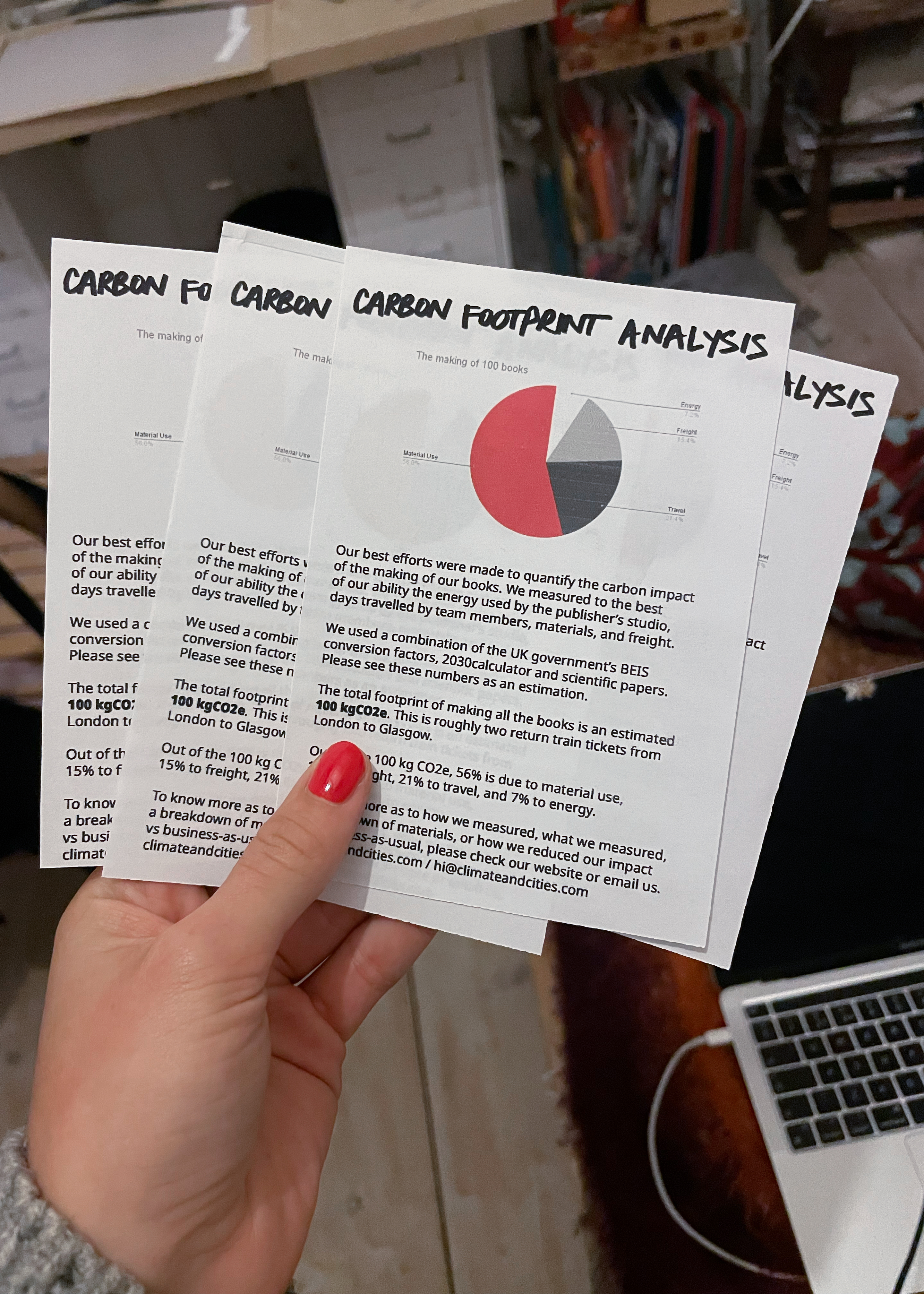
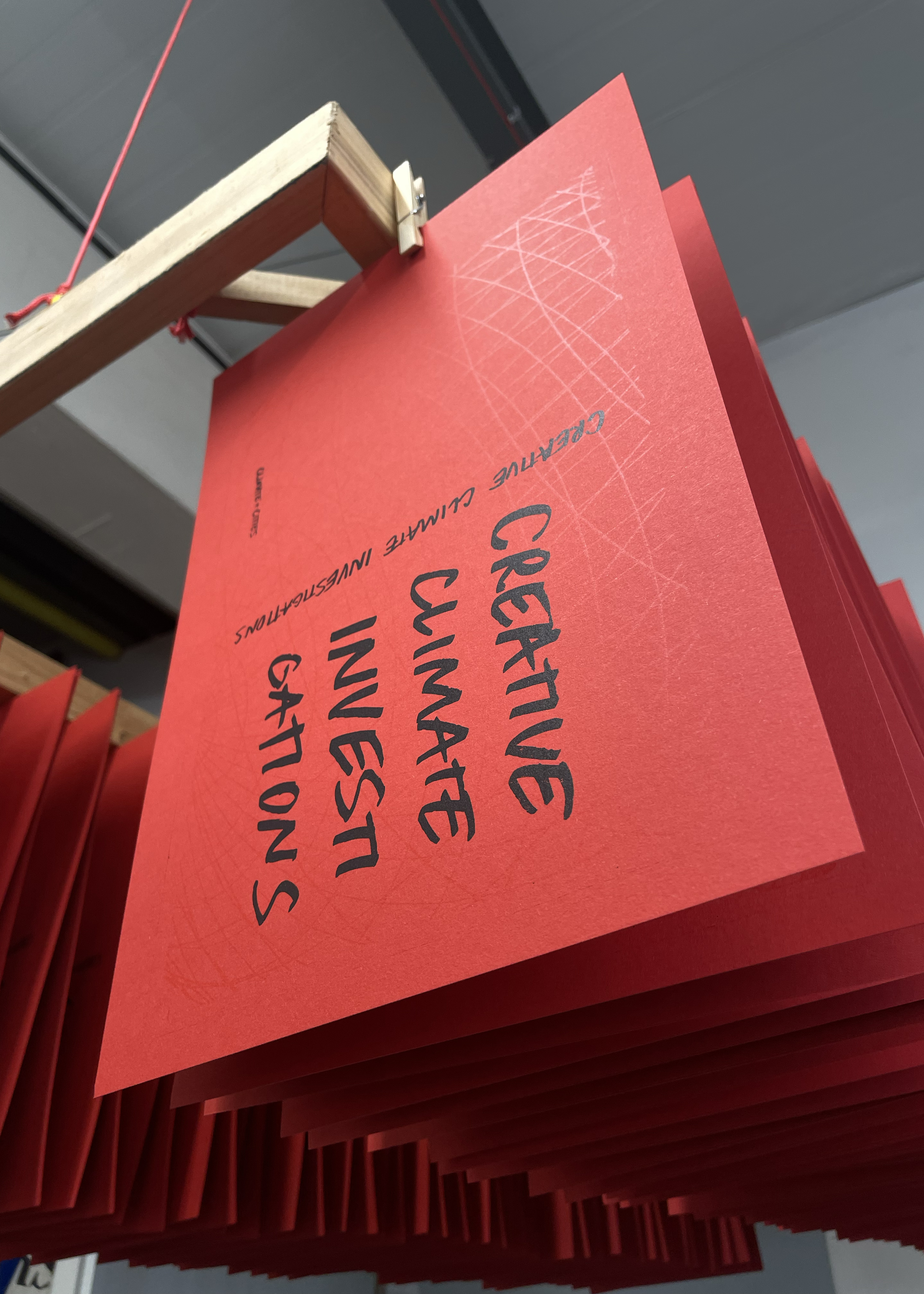
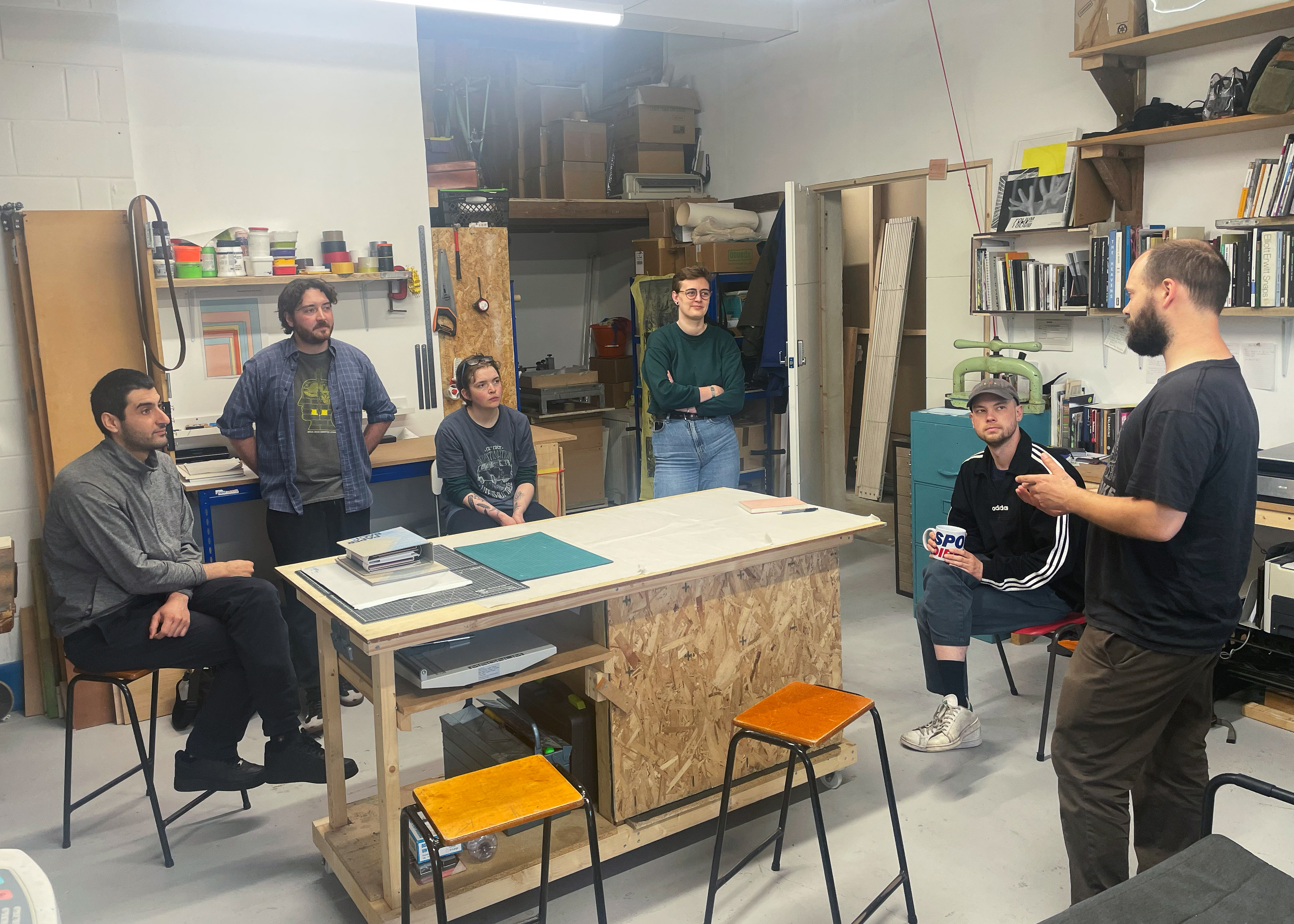
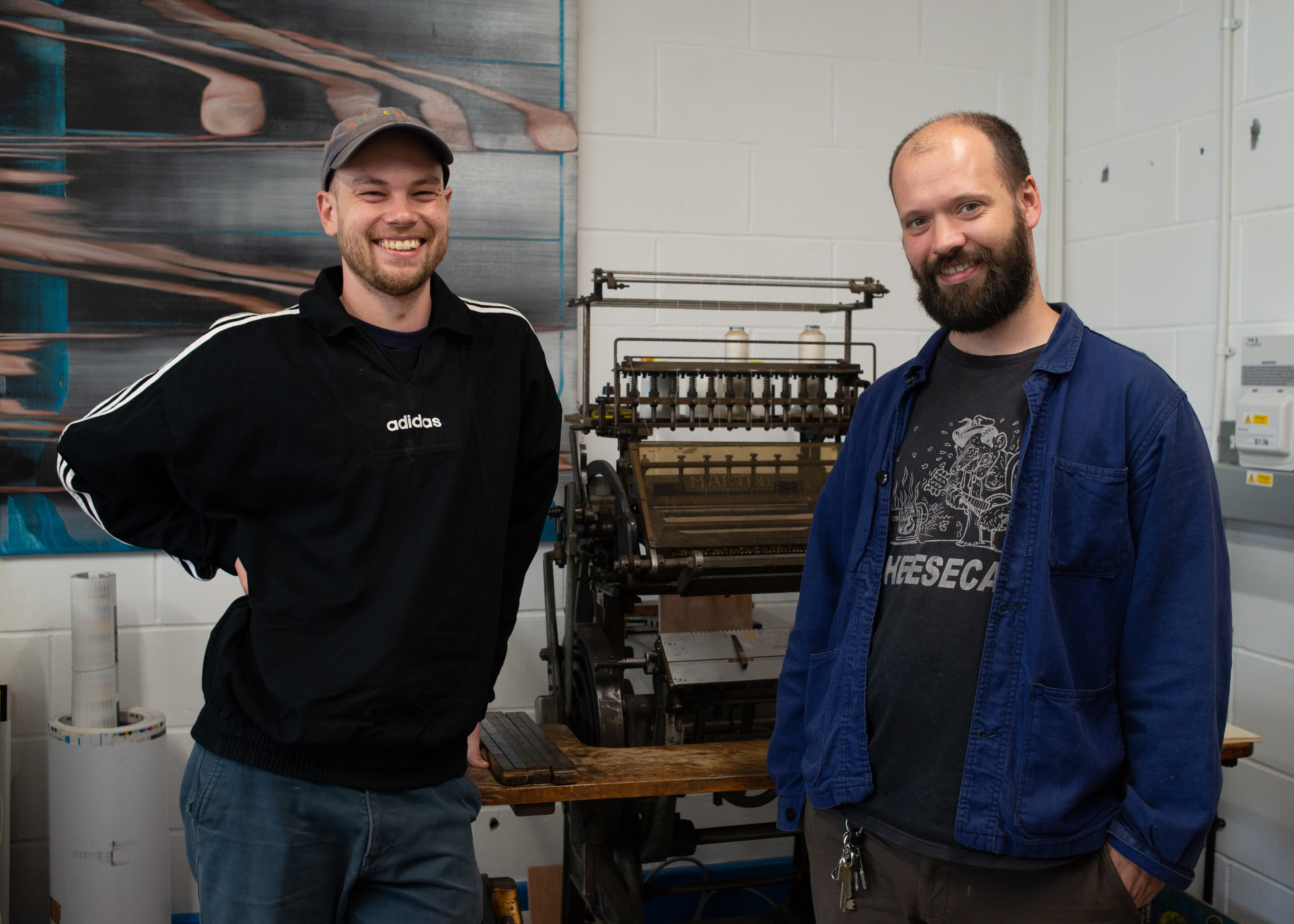
Defining sustainability
To design this book, it was important for us to approach the making as an investigation into sustainable printing practices. We looked at two frameworks when doing so: the ‘carbon approach’ (looking at measuring carbon impact and removing fossil fuel from the process) and circular economy. You will find below the results of both.The carbon approach
Carbon emissions are behind most of global warming, mainly resulting from burning hydrocarbons (i.e., petrol and gas). Measuring the carbon impact of making the books allowed us to understand the most significant emissions and helped us strategise where to prioritise action. On top of this, as the latest IPCC report called for broad reductions of using fossil fuel throughout every sector, we questioned where it is in the materiality of making a book and how to remove it.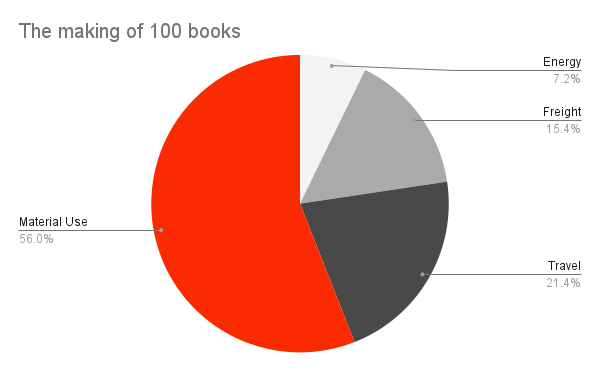
Measuring carbon:
Please remember these numbers are estimates and should not be seen as exact numbers. The numbers reflect the cradle-to-gate numbers; they do not include shipping and disposal.The total footprint of making all the books is an estimated 100 kgCO2e. This is roughly two return train tickets from London to Glasgow. Out of the 100 kg CO2e, 56% is due to material use, 15% to freight, 21% to travel, and 7% to energy.
We successfully reduced travel by ensuring all commutes made by the team happened on public transport. We reduced freight by printing exclusively with Folium and avoiding spreading out printing processes. We reduced materials impact by using only recycled papers sourced from a London-based supplier and using risograph inks for two-thirds of the book.
It should be noted that carbon measurement still needs to be more precise, and we had to overlook some aspects of making, such as the fabric for screenprint, squeegee, and screenprinting inks.
We used a combination of the UK government’s BEIS 2022 conversion factors, 2030calculator and scientific papers for the conversion factors.
Fossil fuel and materials:
When researching our material composition, we realised how deep our reliance on fossil fuels goes.Paper uses bleaching processes that rely on crude oil by-products. PVA glue for the spine is also a by-product of crude oil. Same for digital inks and threads. We reduced our reliance by moving small things around, although it felt almost impossible to print a book without the help of fossil fuels. This is now an area of interest to us that might turn into something bigger - if you’re interested too, get in touch!
d
Circular economy and printing
With circular economy, we looked at Ellen MacArthur Foundation’s three principles: design out waste and pollution, circulate products and materials, and regenerate nature. Please see below actions we took to align our book with the principles.Design out waste and pollution:
The size of our book is a direct reflection of our desire to reduce waste. We looked at the printers available at Folium and designed the book to use the most of the paper as possible, reducing waste at the manufacturing process. Most of the offcuts were rescued by turning them into pads (see here). Regarding pollution, removing digital inks to the maximum was an important step. We looked at using risograph inks, that is a vegetable inks rather than liquid plastics, for two-thirds of the book.
Circular products and materials:
This principle looks at making objects being made to last and to some extent, cared for. We looked especially at this principle when deciding how many books to print. We decided to only print 100 books as we also have a digital PDF that we hope avoided over-production.Another decision arising from this principle is our desire to have nylon thread for the binding. Nylon is a by-product of crude oil, and as our carbon approach wanted to remove this we had to weigh in different options. Using cotton thread does not age as well as nylon (hint: cotton biodegrades a lost faster than plastic). So to ensure our book would last, we did use small amount of it. Note: we did not buy any new threads! Folium had salvaged some thread and this is what we have used.
Regenerate nature:
Books by nature rely mostly on paper, a by-product of trees. Trees capture carbon when growing and are key to a low carbon future. Therefore, avoiding new paper was important to us. We selected our papers from recycled sources from Paperback, a company in South London.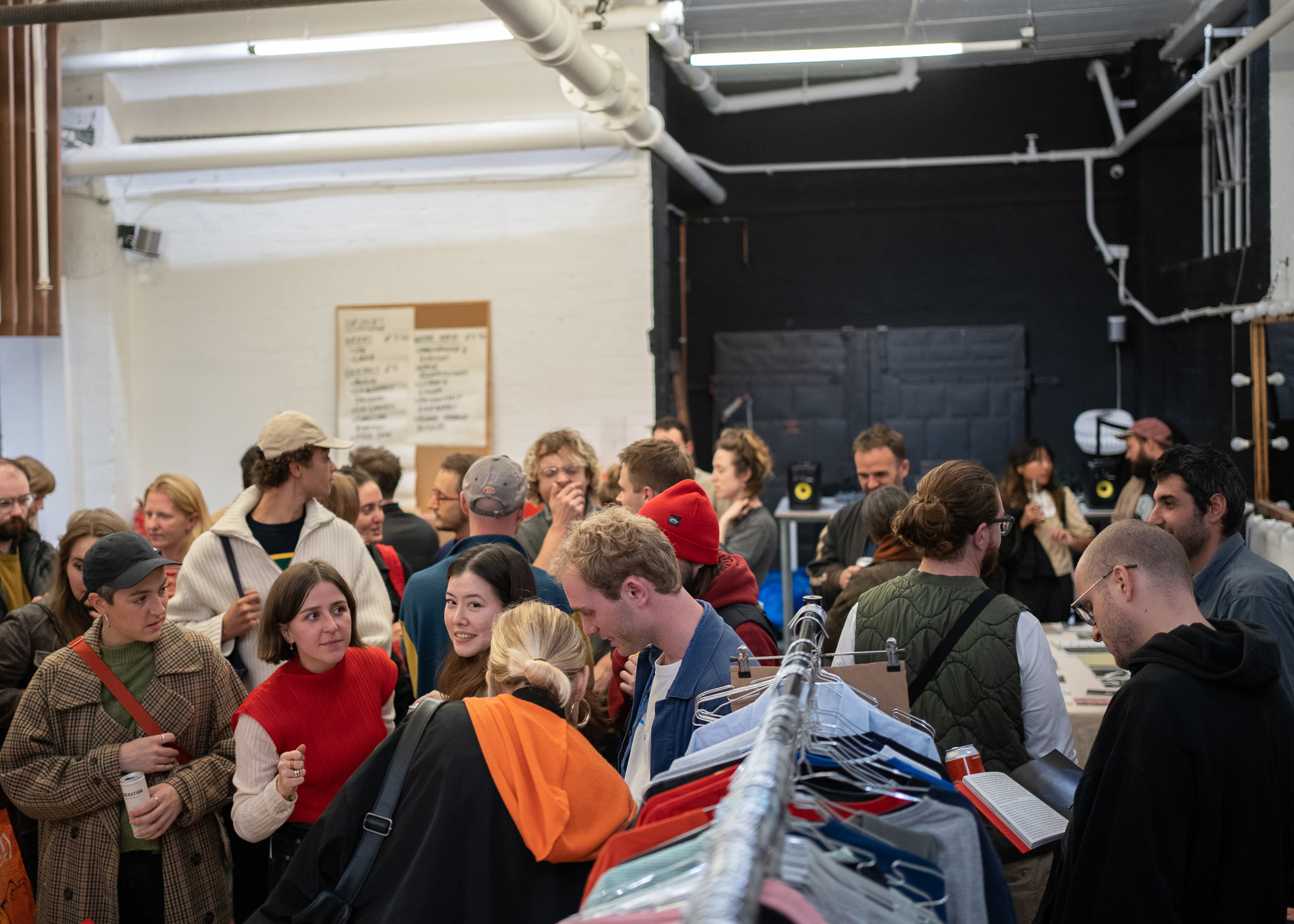

Book Launch at Siblings Studio
On the 13th of October 2022, we hosted a book launch at Siblings Studio, Dalston!We had Barney Kass, DJ Picep, and DJ minimay to supply lovely music, a screenprinting area where you could either bring your own or buy charity shops finds that were pimped up, and we had local drinks served too.
Team:
Designer: Léa SilvestrucciWriters: Alexandra Gribaudi, Alexander Taylor, Rebecca Lardeur, Sepideh Noohi, and all the researchers
Printing: Folium Publishing
Special thanks to our Kickstarter’s special supporters:
Paul Halna du Fretay, Suzanne Grano, Stephanie Kaiser, Anne Lardeur, Julie Connat, Geneviève Connat, Ruth Sweetman, Stephanie Halna du Fretay, Thomas Lardeur, Catherine Lardeur, the Franck family and the Silvestrucci family.instagram - linkedin - medium - email us